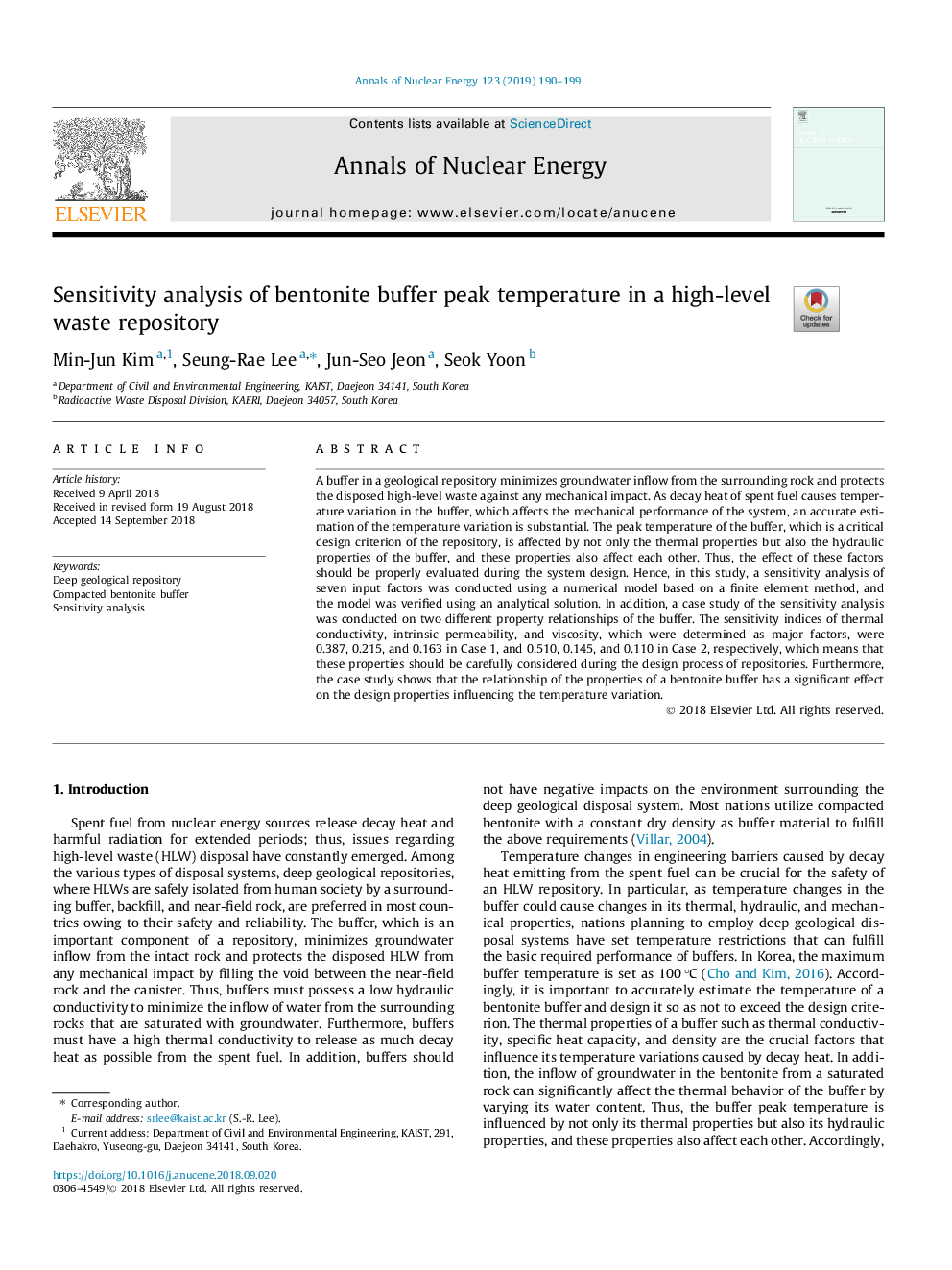| Article ID | Journal | Published Year | Pages | File Type |
|---|---|---|---|---|
| 11026468 | Annals of Nuclear Energy | 2019 | 10 Pages |
Abstract
A buffer in a geological repository minimizes groundwater inflow from the surrounding rock and protects the disposed high-level waste against any mechanical impact. As decay heat of spent fuel causes temperature variation in the buffer, which affects the mechanical performance of the system, an accurate estimation of the temperature variation is substantial. The peak temperature of the buffer, which is a critical design criterion of the repository, is affected by not only the thermal properties but also the hydraulic properties of the buffer, and these properties also affect each other. Thus, the effect of these factors should be properly evaluated during the system design. Hence, in this study, a sensitivity analysis of seven input factors was conducted using a numerical model based on a finite element method, and the model was verified using an analytical solution. In addition, a case study of the sensitivity analysis was conducted on two different property relationships of the buffer. The sensitivity indices of thermal conductivity, intrinsic permeability, and viscosity, which were determined as major factors, were 0.387, 0.215, and 0.163 in Case 1, and 0.510, 0.145, and 0.110 in Case 2, respectively, which means that these properties should be carefully considered during the design process of repositories. Furthermore, the case study shows that the relationship of the properties of a bentonite buffer has a significant effect on the design properties influencing the temperature variation.
Related Topics
Physical Sciences and Engineering
Energy
Energy Engineering and Power Technology
Authors
Min-Jun Kim, Seung-Rae Lee, Jun-Seo Jeon, Seok Yoon,
